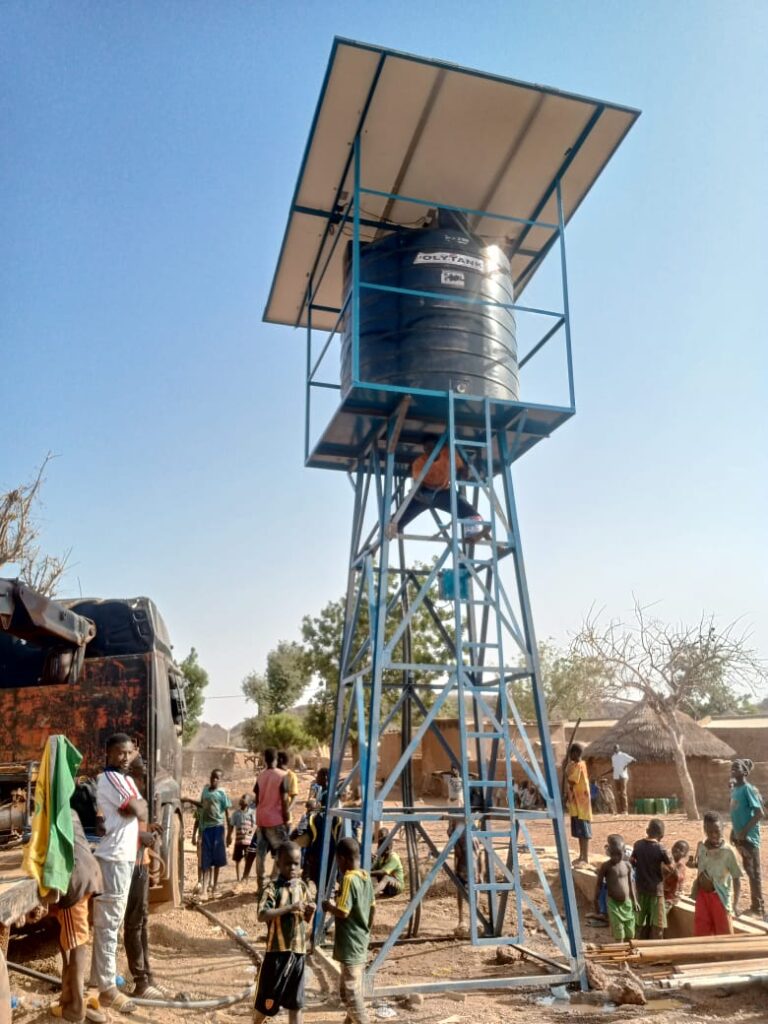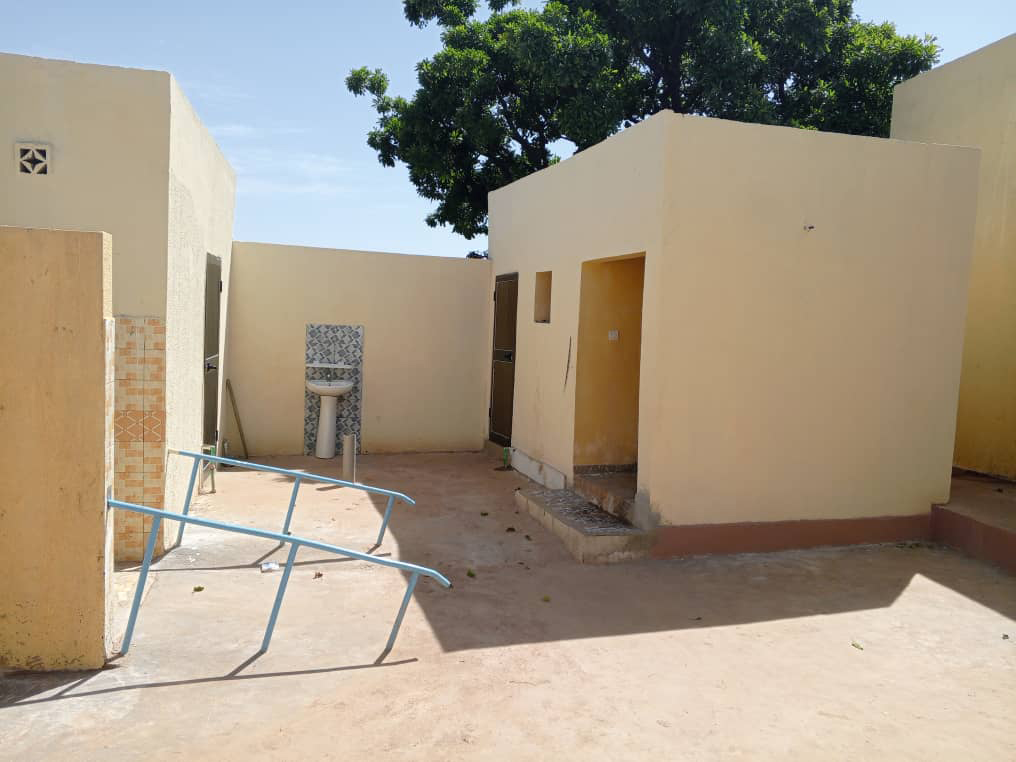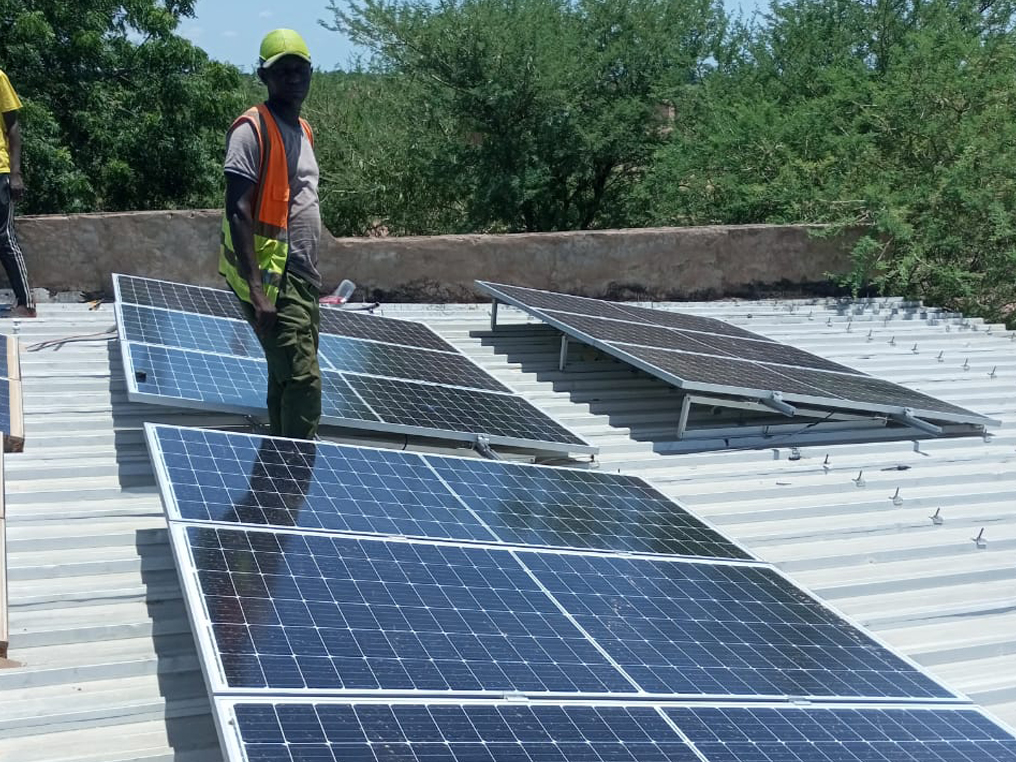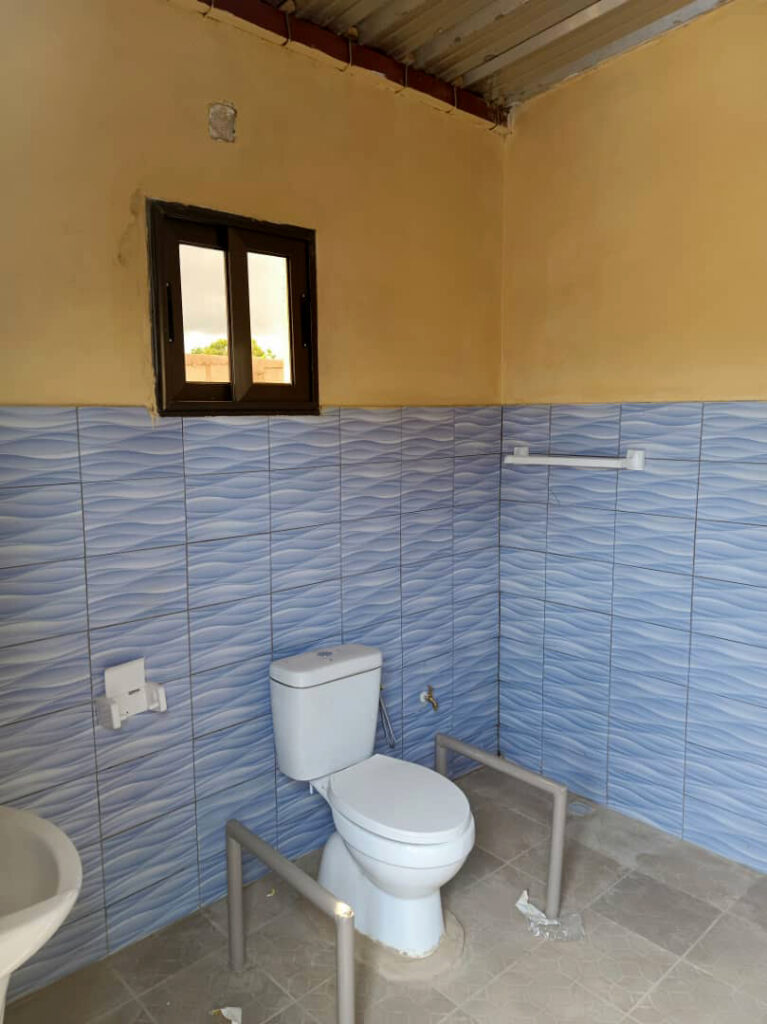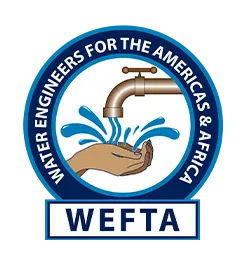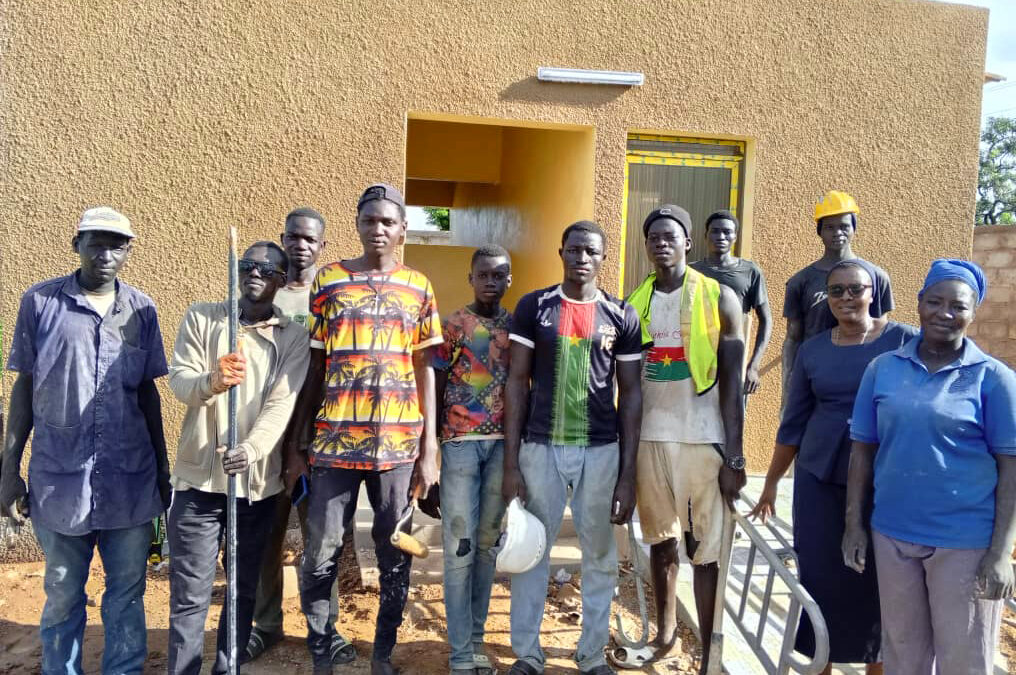WASH project transforms life for thousands of vulnerable families
In the border town of Nouna, Burkina Faso—where waves of internally displaced persons (IDPs) have arrived fleeing violence and terrorism—access to safe water and sanitation is no longer a distant hope, but a reality. Thanks to the dedicated efforts of the Daughters of Charity of St. Vincent de Paul, and with the technical support of WEFTA’s in-country engineer, Adama Sawadogo, a comprehensive WASH project has been completed, transforming life for thousands of vulnerable families.
Funded through a grant administered by Daughters of Charity International Project Services (IPS), the project delivered new latrine blocks, shower facilities, a solar-powered borehole, and a water tower, all of which now serve over 5,000 displaced individuals in the Nouna region. The intervention responded to an urgent need: more than 10,000 people arrived in Nouna in early 2023 due to escalating insecurity, overwhelming the local infrastructure and leaving many—especially women and children—without access to safe water or toilets.
WEFTA provided crucial technical assistance to the project, helping guide design and implementation through our long-standing partnership with the Daughters of Charity and the expert oversight of engineer Adama Sawadogo.
Restored Dignity and Strengthened Resilience
“The community’s participation was a difference-maker,” noted Sister Toyin Abegunde, the project lead. “Displaced families helped construct the infrastructure. That ownership restored dignity and strengthened resilience. Our presence as Daughters of Charity became real and concrete in their midst.”
The results speak for themselves:
- 100% of planned infrastructure completed within six months
- Significant reduction in waterborne illness, including diarrhea and skin infections
- Improved hygiene practices and elimination of open defecation
- Empowered women and children, with easier access to clean water and private, sanitary facilities
The impact is best captured through the stories of those who’ve benefited.
“Before, my children were often sick from dirty water,” said Awa, a mother of four. “Thanks to the borehole and toilets, we live more hygienically. I feel respected, and my children are healthier.”
And from young Assetou, age 10:
“Before, I had to go far to fetch water and sometimes missed school. Now we have water here. My mother is happy, and so am I. I can wash and go to school clean.”
Aïcha, another refugee and now a hygiene volunteer, fled her home after losing her husband in a terrorist attack. Her testimony is strong:
“This project gave me back hope. Water is life. My children are cleaner, healthier, and we sleep with more dignity. Thank you to the Sisters, and to all who think of us.”
Delivering Long-Term Benefits
Despite logistical and security challenges, including contractor delays due to conflict in the region, the team stayed committed and delivered a project that offers long-term benefit.
While the need remains great and many more families await support, this project has brought relief, hope, and restored humanity to a suffering population.
WEFTA remains honored to support the Daughters of Charity and their tireless mission. This is the kind of life-saving work we strive to make possible—with clean water and sanitation as a foundation for dignity and recovery.
